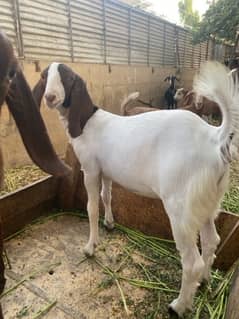
Goat farming is a profitable and rewarding agricultural venture practiced extensively around the world. Goats are considered multi-use animals, as they can provide milk, meat, fiber, and even companionship. The essence of successful goat farming lies in understanding the basics of keeping a goat and executing proper rearing and management strategies.
Different breeds of Goats for sale are suitable for various farming purposes. Breeds like Saanen and Nubian are kept primarily for milk production, while Boer goats are popular for meat production. Pygmy and Nigerian Dwarf goats, on the other hand, are often kept as pets. It’s crucial for the farmer to determine the purpose of the farm before deciding on the breed.
Goat farming involves several key components, including appropriate shelter, feeding, health care, and breeding. A sturdy and spacious pen is essential for housing the goats. This pen should provide adequate protection from predators and extreme weather conditions. Regular cleaning of the shelter also minimizes disease transmission among the animals.
The nutritional requirements of goats vary with their age, breed, and purpose (milk, meat, or fiber production). Providing a balanced diet is vital for their growth, overall health, and productivity. Fresh grazing areas, grains, and protein supplements are commonly included in the goat’s diet. Additionally, regular access to clean water is a necessity.
Routine health care, meanwhile, is an integral aspect of goat farming. Regular vaccination and deworming deter disease outbreaks that can harm the herd. It’s also essential to monitor the animals for any signs of illness and have a veterinary professional carry out regular health checks.
Successful goat farming also entails effective breeding practice. Choosing the right male (buck) and female (doe) goats for breeding has a significant impact on the offspring’s overall health and potential productivity. Farmers often seek assistance from veterinary professionals when it comes to these matters.
Aside from these basic aspects, learning from experienced goat farmers or through comprehensive training programs can significantly contribute to the success of the venture. Certain factors like the animals’ behavior, climate, local market demands, and financial constraints need to be well-understood before starting a goat farm.
Overall, goat farming is a highly beneficial venture due to its low maintenance costs, small space requirements, and adaptability to varying environments. It’s a sustainable form of farming that promotes organic consumption and contributes to minimizing food scarcity. With commitment and by adopting appropriate practices, anyone interested can manage and make a prosperous business out of goat farming.
